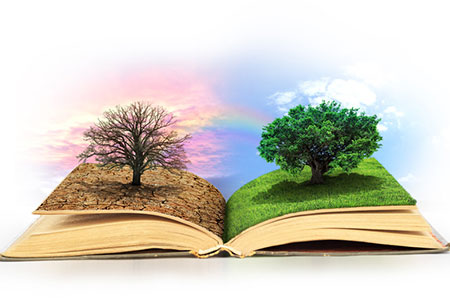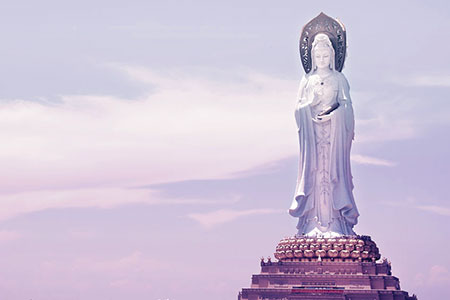spiritual growth
Embracing The Uncertainty Of Change
 One of the earliest life lessons I had to learn the hard way is that change is the only thing that ever consistently happens in life. We cannot avoid it. It is fundamental to our journey in this lifetime to learn to embrace change, as without it we cannot grow and evolve as spiritual beings.
One of the earliest life lessons I had to learn the hard way is that change is the only thing that ever consistently happens in life. We cannot avoid it. It is fundamental to our journey in this lifetime to learn to embrace change, as without it we cannot grow and evolve as spiritual beings.
Yet, change causes much fear and apprehension for many people. It can be daunting. This is in fact one of the reasons why clients contact me for advice and predictions. In life it is vital to always be prepared for change.
Being mentally and emotionally prepared gives us a greater sense of control over any forthcoming event and thus alleviate some of its stress. Who wants to remain stagnant anyway? It is vital to look for the good that change can bring, rather than dwell on any potential negative impact it could bring about. We need to take on board the necessity to learn and strengthen from it.
Change comes in many forms. For example, it is estimated some people change their homes up to eight times in their lifespan. How stressful is that? But instead of focusing too heavily on the downside, such as the stress of buying, selling and packing, spirit advises we see a new home as a beautiful new chapter in our lives. Think of it as an exciting fresh start and allow yourself time to adjust. You may soon be happier in your new abode than you could ever imagine!
Beginning a new job is equally stressful. For whatever reason you find yourself in new employment, the very thought of walking into a new workplace on a Monday morning, meeting new colleagues in unfamiliar environment is always daunting. However, rather than be afraid, advises spirit, why not congratulate yourself for being there in the first place?
Spiritual Awakening And The Segmented Sleep Cycle
 One of the most commonly experienced symptoms of spiritual awakening is frequently waking in the early hours from 3am to 5am. It’s important to rule out any medical reasons this could be happening. However, if you are in good health and you have been regularly waking up this early, then you may be experiencing this due to spiritual awakening.
One of the most commonly experienced symptoms of spiritual awakening is frequently waking in the early hours from 3am to 5am. It’s important to rule out any medical reasons this could be happening. However, if you are in good health and you have been regularly waking up this early, then you may be experiencing this due to spiritual awakening.
You may have found by now in an online search that you are waking up at 3am because it is ‘the witching hour’. You may also have read that 3am is an auspicious time to wake, or the opposite, that it is a ‘time of dark magic.’ Or that during your spiritual awakening you may be ‘spiritually attacked’ and this is why you are waking in the wee hours. While some of this may be true for some people, I am going to have to say that it probably has nothing to do with your waking up at or around 3am.
Yes, it is a sign of awakening! And a very, very common one too. But the reason you are waking at 3am is not metaphysical; it is biological. It is biology which is influenced by your spiritual progression. But essentially it is a return to your natural state of being – your natural sleep cycle. This is called the circadian rhythm.
Most people just accept that we sleep naturally for about eight hours a night. But there is a great deal of evidence that this is not actually the natural sleep cycle for human beings. In fact, evidence suggests that prior to the industrial revolution, our sleep cycle was very different.
To demonstrate this point, we must return to the concept of awakening and what awakening really is. We call it spiritual ‘awakening’ for a reason – we are waking up. Waking up means being conscious in an otherwise largely unconscious world. During the process of awakening people often find themselves becoming very sensitive to things that never really bothered them before. This is because they are suddenly present and hyper-aware when things are out of alignment with the natural order.
The Wisdom Of The Trees
 The annual seasons profoundly affect perennial trees. Each year many species of perennial change color, release their leaves, go dormant, and then come back to life in the spring with new growth.
The annual seasons profoundly affect perennial trees. Each year many species of perennial change color, release their leaves, go dormant, and then come back to life in the spring with new growth.
As humans we could learn a lot from these trees. Firstly, they are naturally in tune with the seasons. They can ebb and flow with the natural order of things. For a season their leaves will gather up energy from the sun for growth. They bask in the light and find nourishment. And they can do this because of their ability to release the old when the time comes.
There are times in our lives when we also need to release the old things from the past. All our life experiences have natural course and expiry date to them. All our relationships in this physical life are also temporary experiences. Knowing this allows us to be in the flow with the cycles of life and the afterlife.
Too often we resolutely cling to the past, which causes us to feel stuck or keeps us from developing the types of relationships and experiences we truly want. If the trees were to hold on to their old dead leaves, there would be no room nor energy for further growth. It would be impossible for them to thrive and be nourished by the sun.
There is also no way for trees to perpetually grow. One time I planted a tree late in the season. I gave it lots of nourishment, but over the winter it died off. By fertilizing the tree, I was creating a condition that would not allow it to survive. The fall is when trees release their leaves so the wood can harden off.
Too often people want to run to the next experience, and the next experience. Or they they try to make an experience last indefinitely. They want to make the ‘summer’ of their peak human experiences last forever. They never give themselves the opportunity to let go and properly grieve what has been, in order to recenter and become stable and energized for the next spring.
It is important for us to acknowledge our actual life experiences and move through the winter seasons in a way that prepares us for the next season. There is a temptation to just keep running to the next experience or next relationship to satiate a previous painful experience. However, in doing so we create situations that are toxic and unsustainable.
Small Steps To Big Changes
 Making positive changes in your life can often feel like an insurmountable task. At times it can be so daunting that it might even seem easier to just have things stay the same, no matter how uncomfortable it has become.
Making positive changes in your life can often feel like an insurmountable task. At times it can be so daunting that it might even seem easier to just have things stay the same, no matter how uncomfortable it has become.
This is especially true when we have been working on the same aspect of our life for years and still not seeing the results we were hoping for, whether the issue is weight loss, finances, health and wellness, family, career, or relationship.
For me the challenge was a particularly frustrating relationship situation. I felt that no matter what I did, no matter how hard I tried to grow and move forward, I always got sucked back into the drama and negativity.
I continually called on my angels and spirit guides to help me improve the relationship, to heal our issues, release our karma, and so forth. I tried anything and everything I could think of to achieve some of the harmony and peace I so much desired in my life.
This went on for years, and I was ready to throw in the towel and just accept that this one area of my life would always be out of balance. But as soon as I let go, I received the most amazing piece of information from my guides!
They showed me how I was focusing too much on the big picture, or the end result. I also realized that because everything wasn’t miraculously healed over night, I was becoming frustrated and disregarding all the tiny steps and improvements I had been making in repairing the relationship.
My guides further told me to break the steps in the healing and reconciliation process down into smaller parts. Instead of seeking instant and complete resolution, I should be working towards small daily improvements. If I do this consistently, I will soon reach the end goal.
The Spiritual Calling Of Animal Rescue
 I have always felt that I have two life callings: my work and taking care of rescue animals. And I aim to do both to the best of my ability.
I have always felt that I have two life callings: my work and taking care of rescue animals. And I aim to do both to the best of my ability.
A neighbor stopped me today as I was walking my dogs. This often happens when I am out with them. He asked me why I chose to walk the dogs, while I have a large plot of land for them to freely roam.
Well, they do run around on the property, at least the two younger ones do, but the pleasure of walking them is immeasurable. It is a true joy to see them relishing in the unfamiliar smells and the intriguing creatures they encounter in the countryside. They even made friends with a nearby farm’s goats and another neighbor’s cat.
I also enjoy the lovely countryside around me, which I will be less likely to experience on my own had it not been for the reminding me every day that it is time to go ‘walkies.’ Apart from the obvious exercise being advantageous for my health and well-being, it is also a sort of a meditative process and spiritual practice, because I am required to be very present in the moment.
One of my dogs is a warren hound, known in Spanish as a podenco. They are a Mediterranean rabbit-hunting dog breed. So, she’s a hunting dog and if she suddenly makes a dash to chase something, she could easily catch me off guard and pull me over. I can therefore no afford to be distracted or preoccupied. Instead, I must mindful and aware, which is very beneficial for my inner peace and spiritual alignment.
My dogs and cats are all rescues, some from unthinkably harsh backgrounds. Looking after them has involved a lot of care and veterinary visits, including many specialist observations and surgeries. When you take rescues into your home, they tend to come with much fear and many insecurities, which takes patience and unconditional love.
Two large rescue dogs, that have since departed this life to cross over the rainbow-bridge, wouldn’t allow me to touch them and refused to come inside the house. I provided them adequate shelter outside, but it still bothered me, because the winters can be harsh here in Spain.

